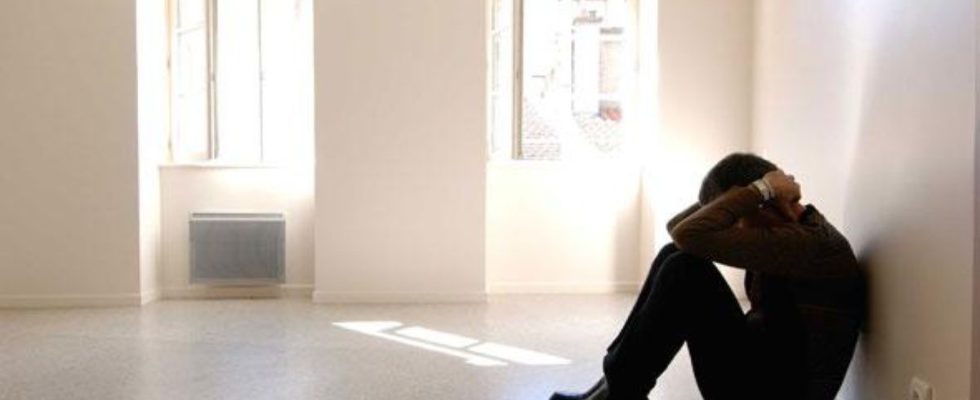“Have you ever thought about killing yourself?” » The sentence is released in one go, calmly, without the voice breaking. A shock wave runs through the room and everyone holds their breath, almost forgetting for a moment that this is a role-playing exercise. This afternoon, in a cozy coworking space in downtown Nantes, around ten people from all walks of life came to train in mental health first aid.
A two-day session, as some 70,000 people in France have already followed since 2019, which aims to provide “better knowledge of mental health and psychological disorders”, explains the Ministry of Health, which is pushing for its development. In front of the other participants, the two volunteers continue to unfold the scenario. “It’s true that with everything that’s happening to me at the moment, life no longer has any importance for me…” “I’m here for you,” his so-called neighbor replies kindly. There are always solutions, and above all professionals to help you. »
An action plan, like the “gestures that save”
While in Europe 27% of the population has suffered from a psychological disorder during the last twelve months, the word seems to be slowly becoming clearer around mental health. However, it is difficult to find the right words when a colleague, a friend, or a family member seems distressed, or might even act out. “The objective is for the mental health first aider to know how to detect the symptoms, then how to react until bringing the person to care,” explains Cécile Maniez, the trainer from Nantes. In the case of a suicidal crisis, it is important to ask the person clear questions, without being judgmental about their intentions. This allows us to assess his condition, to show him that we understand and that we are open to discussion. You have to be ready for her to answer “yes” and in this case of emergency, to call emergency services. »
Like “gestures that save”, mental health first aid, born in Australia in 2000 and which has since proven itself in 24 countries, offers a real action plan. Whether for an anxiety disorder, depressive disorder, or one linked to substance use, the latter is broken down into five steps united under the acronym AERER (approach, listen, comfort, encourage to see a professional and provide information on existing resources ). “When we notice a major change in emotions in a person, which lasts over time and which alters daily life, we should not hesitate to ask questions,” says the trainer. But the rescuer is not a therapist, he is there as a relay. You should know that one in two people who suffer from a mental disorder will not seek help on their own, due to lack of information or fear of judgment. »
“Offer the hope of getting better”
Pharmacy student in Nantes and future first aid worker, Pauline knows this all too well. After her brother’s suicide, the young woman gave herself the mission of “destigmatizing mental health topics” among health students who “will spend their lives helping people but who don’t take care of them themselves” but also more broadly, in society, where “there is distress, everywhere”. Franck, for his part, wanted to get his certificate after this management consultant had to deal with the case of an employee who told him of her discomfort, bursting into tears during a round table discussion. “I acted on intuition, trying to listen to him then advising him to go see a psychologist,” recalls the coach. I didn’t do so badly but now I have real support. This is important because sometimes we think we are helping, but in fact we minimize. »
For Cécile Maniez, “taking the time to discuss your feelings with a person and offering them the hope of getting better” is above all a “citizen’s approach”, but you must be careful to “protect yourself”. The objective of the First Aid in Mental Health (PSSM) association, which runs these training courses (accessible from 18 years old, recommended price: 250 euros), is to reach 750,000 mental health first aiders throughout France by to 2030.

